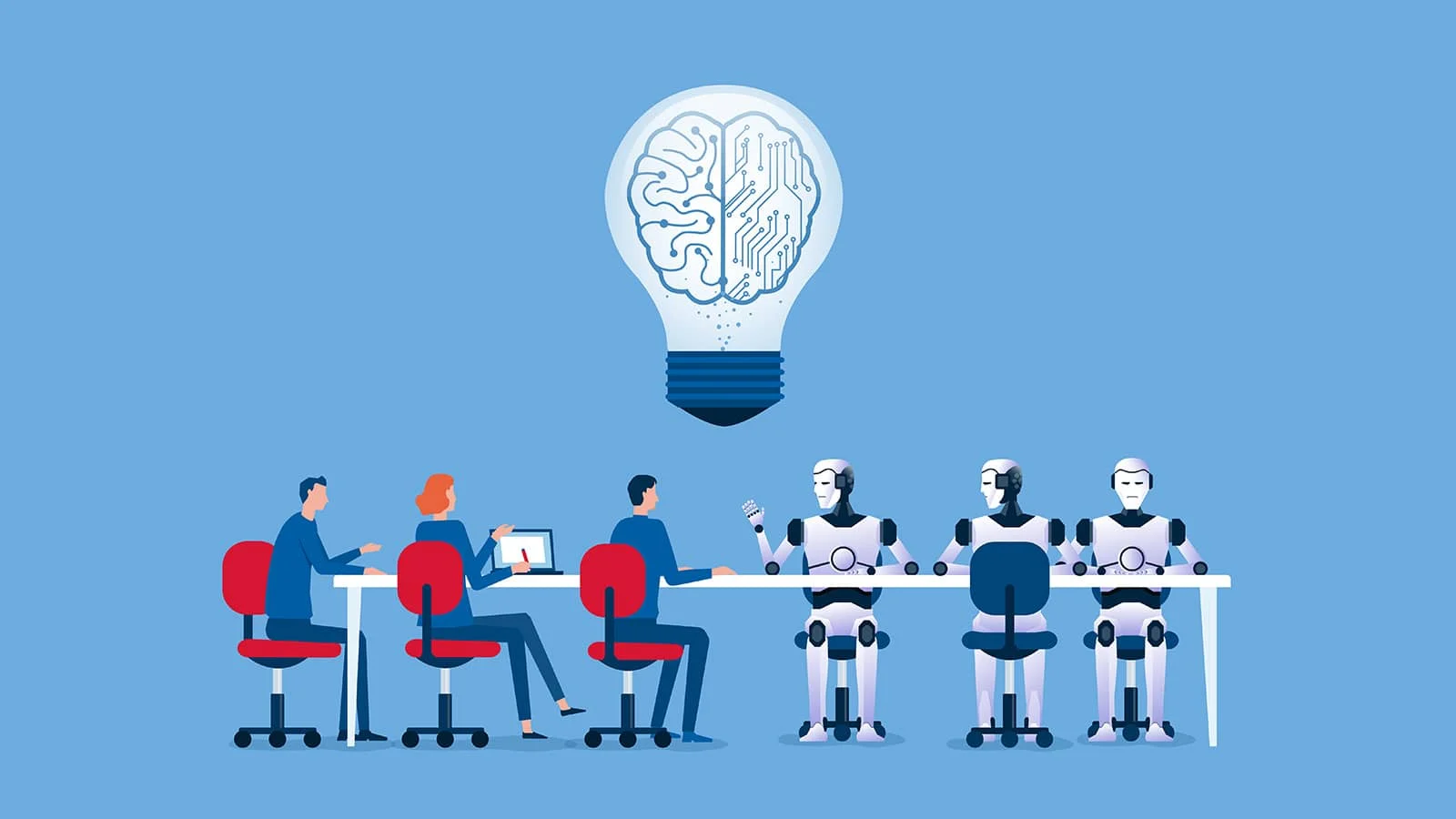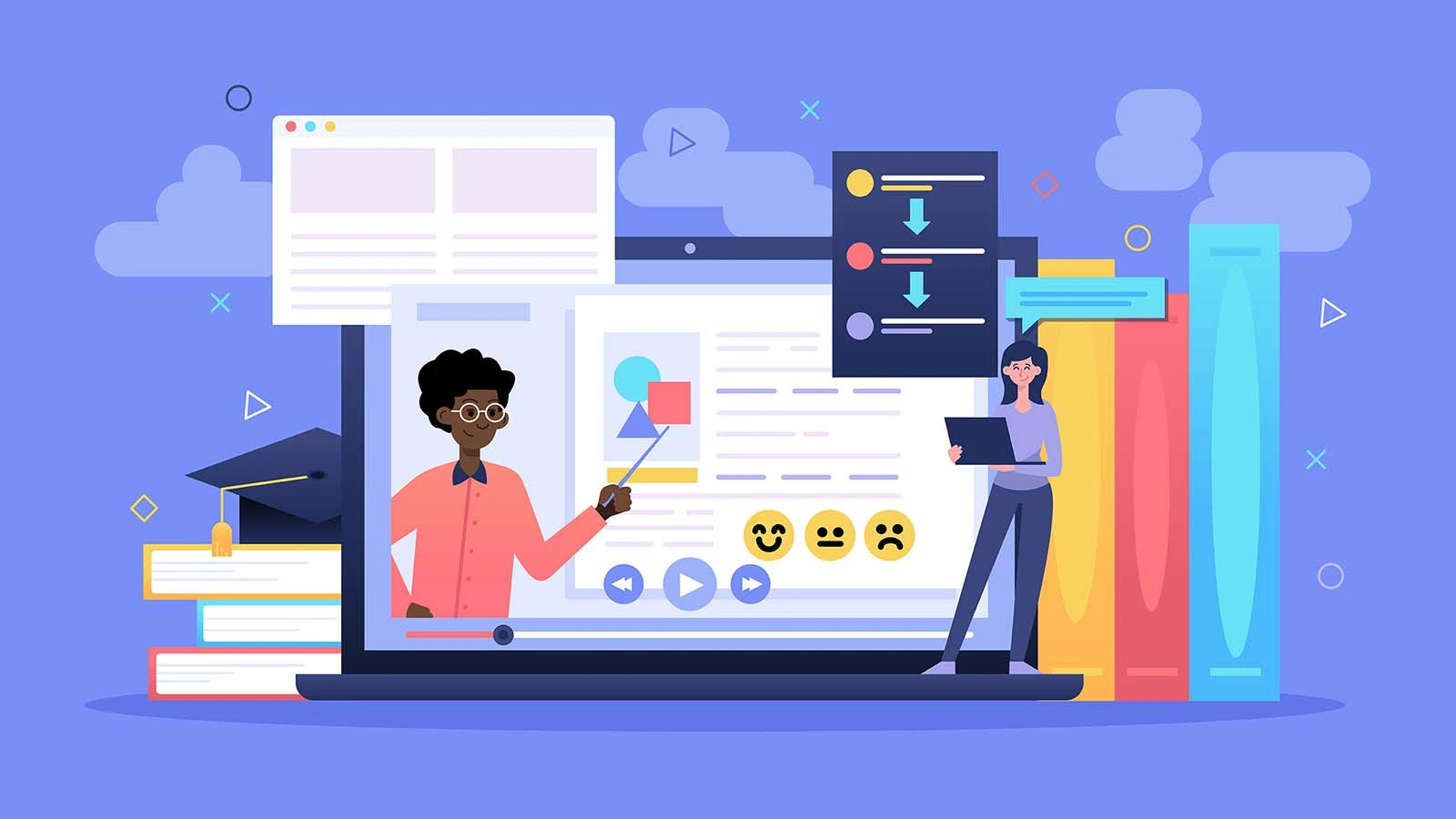How Will AI Change Corporate Training
Rohit Kumar
22 Feb, 2024

Integrating Artificial Intelligence (AI) into corporate training is reshaping the approach to employee development. This shift from traditional methods to AI-driven solutions enables a learning experience tailored to the diverse needs of employees. AI technologies analyze learning behaviors to deliver content that aligns with individual preferences and requirements, making training more effective and engaging.
With AI, training programs become more interactive and accessible. Intelligent algorithms enhance the delivery of training materials, making it easier for employees to engage with and retain new information. These technologies adapt to each learner's pace, offering immediate and relevant feedback on their progress.
As organizations adopt AI in their training strategies, they open doors to a future where learning is continuously adapted to the evolving workplace. This progress in corporate training benefits employees by providing them with valuable skills and supports organizational growth by fostering a more knowledgeable and versatile workforce.
The Current State of Corporate Training
Corporate training often followed a standardized, one-size-fits-all approach before the current hype of Artificial Intelligence (AI) and generative AI in corporate environments. This traditional method primarily relied on in-person sessions, workshops, and seminars covering broad topics relevant to various organizational roles. While effective to a degree, these methods faced challenges in scalability, customization, and keeping pace with rapid technological advancements.
One significant challenge was addressing individual employees' diverse needs and learning paces. Traditional training methods struggled to adapt to each learner's unique requirements, leading to some participants finding the pace too fast and others too slow. This lack of personalization often resulted in reduced engagement and retention of information, making it difficult for employees to apply new skills effectively in their roles.
Moreover, the logistics of coordinating training for a large workforce, especially for multinational corporations with teams spread across the globe, presented another layer of complexity. Scheduling conflicts, travel costs, and the need for consistent training quality across different regions added to the challenges organizations face in developing their talent effectively.
In response to these challenges, the shift towards digital learning platforms began to gain momentum, laying the groundwork for integrating more advanced technologies like AI. These digital platforms offered some improvements over traditional methods, such as greater flexibility in scheduling and the potential for customization. However, the introduction of AI into the training landscape promised a more profound transformation, heralding a new era of personalized, efficient, and engaging training journeys designed to meet the evolving needs of the modern workforce.
AI's Emergence in Corporate Training
Artificial Intelligence (AI) initially entered the corporate training arena as a tool for basic task automation. Its evolution into a sophisticated learning aid marked a significant shift in training methodologies. AI's ability to analyze extensive data sets and identify learning patterns transformed it from a simple administrative tool to a cornerstone of personalized learning experiences.
-
Early Automation: AI began by automating administrative tasks like scheduling and grading
-
Data Analysis and Pattern Recognition: It evolved to analyze learner data, identifying patterns to inform training strategies
-
Customized Learning Experiences: AI's advanced capabilities enabled the creation of tailored learning experiences, adapting to individual learner needs
As AI technology continued to advance, its role in training expanded to include adaptive learning systems and personalized content delivery. That marked a departure from traditional, one-size-fits-all training methods, paving the way for more dynamic and responsive learning experiences.
-
Adaptive Learning Systems: AI algorithms started tailoring learning experiences based on individual performance
-
Personalized Content Delivery: AI began curating and recommending training materials tailored to each learner's needs
Personalizing Learning with AI
AI's capability to personalize learning experiences in corporate training has been transformative. AI tailors content by analyzing individual learning behaviors to suit each employee's unique needs, ensuring learners engage with material that directly benefits their roles.
-
Custom Learning Paths: AI creates individualized learning journeys based on each learner's skills and goals
-
Targeted Skill Development: AI identifies specific areas where learners need improvement and suggests relevant training
-
Dynamic Content Adjustment: AI continuously adapts training content to match the evolving skill level and learning pace of each employee
This level of customization enhances the effectiveness of training programs and increases employee engagement and motivation. AI-driven personalization ensures that training is relevant, engaging, and directly aligned with individual career aspirations.
Boosting Engagement and Accessibility
AI significantly enhances engagement and accessibility in corporate training. Interactive AI tools like chatbots and virtual assistants provide learners with immediate assistance and feedback, making learning more engaging and efficient.
-
Interactive Tools: Chatbots and virtual assistants offer real-time support and guidance
-
Immediate Feedback: AI provides instant responses to learners' queries, enhancing understanding and retention
-
Engagement Analytics: AI analyzes engagement levels, helping to refine and improve the training content
-
Diverse Formats: AI delivers training in various formats, catering to different learning styles
-
Language and Accessibility: AI provides training materials in multiple languages, making learning inclusive for all employees
-
Accessibility Features: AI incorporates features like subtitles and voiceovers to make training accessible to all learners
AI also improves accessibility in training programs. By offering training materials in various formats and languages, AI ensures that learning is inclusive and caters to different preferences and needs.
Streamlining Content Creation and Management
AI streamlines the creation and management of training content. It automates the curating and organizing of learning materials, saving significant time and resources. AI can analyze existing content to identify gaps and redundancies, ensuring that training programs are comprehensive and up-to-date. This efficiency in managing training content allows organizations to focus more on strategic aspects of learning and development, ensuring that their training programs are always relevant and practical.
Predictive Analytics and Improved Decision Making
AI's role in predictive analytics has been transformative for corporate training. It analyzes data to predict future training needs and trends. This foresight enables organizations to proactively address skill gaps and align training programs with emerging industry requirements.
-
Future Skill Requirements: AI identifies future skill needs based on industry trends
-
Tailored Training Programs: AI helps tailor training programs to meet evolving business needs
-
Strategic Workforce Planning: AI informs strategic planning by predicting future training and skill requirements
Challenges and Considerations
While AI brings numerous benefits to corporate training, it also presents challenges. Concerns around data privacy and the ethical use of AI are paramount. Organizations must navigate these challenges carefully, ensuring that AI solutions are implemented responsibly and transparently.
-
Data Privacy and Security: Ensuring the confidentiality and security of data used in AI-driven training programs
-
Ethical Use of AI: Addressing ethical considerations in the use of AI for training
-
Human Element in Learning: Balancing AI solutions with the need for human interaction and mentorship in learning
The Future of AI in Corporate Training
The role of AI in tomorrow's corporate training is promising and filled with potential. Emerging technologies like augmented reality and advanced analytics will enhance learning experiences further. As AI continues to evolve with new trends like generative AI, LLMs, and ChatGPT, it will play a crucial role in shaping innovative and effective training solutions.
-
Augmented Reality Integration: Incorporating augmented reality for immersive learning experiences
-
Advanced Analytics for Deeper Insights: Using advanced analytics to gain deeper insights into learning effectiveness
-
Continuous Evolution of AI Technologies: The ongoing development of AI technologies and their future impact on training
Core Competency specializes in providing comprehensive corporate training software and services designed to meet the diverse needs of today's organizations. Our focus on practical, effective training strategies ensures your workforce has the skills necessary for success. We invite you to explore our services and see how we can contribute to your organization's growth. Reach out to us for a free demo and take the first step toward uplifting the impact of your corporate training program.
Assessment of Behavioural Core Competencies
For example, students struggling with a particular concept could be provided with additional resources or assigned to a different module via the e-learning and learning management system.
Read Blog




